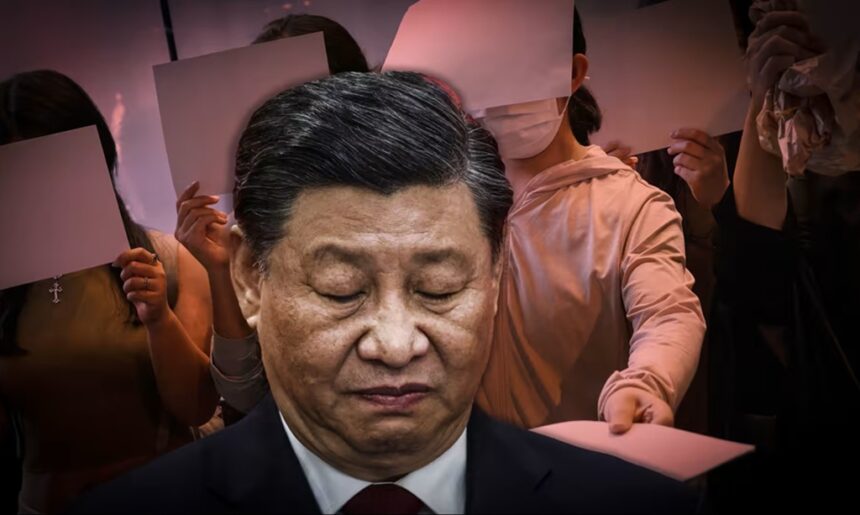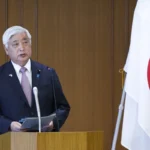BEIJING — For over ten years, President Xi Jinping has stood firmly at the centre of the Communist Party of China (CCP), exercising significant control over China’s government, armed forces, and major industries.
Recently, public silence from Xi Jinping has attracted attention, with growing rumours about his health, authority, and the country’s leadership path. His absence at the 17th BRICS Summit in Rio de Janeiro earlier this month—his first missed BRICS meeting since taking office in 2012—has fuelled talk of health setbacks, internal power plays, and possible leadership changes.
These rumours come as China faces military reorganizations, economic uncertainty, and a climate that discourages open dissent.
Xi Jinping Missing From BRICS
Xi Jinping’s choice not to attend the BRICS Summit—key for China’s push against Western influence—was felt among diplomats worldwide. Chinese officials explained his absence as a “scheduling conflict” and pointed to recent meetings with Brazil’s President Lula da Silva.
Still, many experts dismissed this as unconvincing, noting the importance of other countries present at BRICS. As U.S.-China analyst Gordon Chang put it, for Xi Jinping to skip this meeting is highly significant.
Premier Li Qiang led China’s delegation, echoing Xi’s absence from the 2023 G20 event in India. Both Xi Jinping and Russia’s Vladimir Putin were missing—Putin only joined by video due to an international arrest warrant, leaving the stage to India’s Narendra Modi.
With no sign of China’s top leader at an event Beijing has always supported, questions about China’s political focus and Xi’s health grew.
Social media posts picked up speed, with some alleging Xi suffered a stroke in 2024, though no firm proof or official word has appeared.
Xi’s public appearances have become rare. He was not seen between 21 May and 5 June, a fourteen-day break from public view—a long stretch for someone who usually dominates state coverage.
On returning to meet Belarus’s President Lukashenko, Xi looked quieter, and his security team appeared smaller, adding to the suspicion that he faces serious health issues.
Health Concerns and Past Rumours
Talk about Xi’s health is not new, but the recent wave is stronger. In July 2024, some social media posts and overseas reports claimed a “major” stroke during a key CCP meeting, saying Xi collapsed and was rushed out by medics.
Observers also noted a scar on his head in a photo from August, suggesting possible surgery, but again, no official statement followed. Earlier, a similar buzz grew in 2022 when Xi Jinping disappeared for ten days, fuelling talk of a possible house arrest that proved untrue.
China’s closed political system makes it hard to confirm or disprove such stories. The government’s strict grip on news means even claims from known dissidents or former army officers require caution. Yet, the steady stream of health rumours shows many are uneasy about Xi’s rule as China faces economic pressure and growing tension overseas.
Xi is known for tight control over the armed forces, using anti-corruption drives to remove hundreds of officers since 2013. Still, the recent removal of high-ranking figures, like Admiral Miao Hua and Generals Wei Fenghe and Li Shangfu, hints at possible threats to Xi’s hold on the military—or at efforts to stamp out rival power bases.
Reports of a general’s suicide and the removal of up to 39 senior officers—most chosen by Xi—have stirred more speculation about internal conflict.
General Zhang Youxia, now the First Vice Chairman of the Central Military Commission and once considered close to Xi, is seen by some as gaining influence. Some reports suggest Zhang, supported by ex-President Hu Jintao’s allies, is steering the armed forces and could become a key decision-maker if Xi steps down.
The public removal of Hu Jintao at the 20th Party Congress in 2022 underlines ongoing competition inside the top ranks of the CCP.
Experts disagree on what the military changes mean. Some, like The Indian Express, see the high-level firings as proof that Xi still gives the orders. Others, like British analyst Kerry Brown, say the absence of open challenges—such as local leaders acting alone or military officers refusing orders—shows Xi remains in command.
Business Leaders and Echo Chambers
Chinese leader Xi Jinping’s policies have drawn rising criticism from business leaders, who point to a slow property sector, high youth unemployment, and new tariffs from the US. By scrapping Deng Xiaoping’s tradition of shared leadership and centralizing power, Xi has silenced nearly all dissent and surrounded himself with loyalists, such as Cai Qi and Ding Xuexiang, crowding out differing views from the Politburo’s top group.
This controlling atmosphere stretches further. Strict internet rules, bans on sites like Wikipedia, and tough penalties for spreading “defamation” keep public discussion muted. A law from 2013 allows up to three years in prison for bloggers whose posts are widely shared and judged offensive. With such measures in place, most in China avoid speaking out, keeping rumours alive but underground.
A Possible Change at the Top?
The boldest rumours now point to a possible leadership shift. At a 30 June Politburo meeting, party news outlet Xinhua said new rules were discussed to standardize party structures, which some take as groundwork for handing over power.
Victor Shih, a scholar from the University of California, San Diego, suggests Xi Jinping might be passing daily tasks to others and focusing on big-picture issues, while others think this is early planning for retirement at the 21st Party Congress in 2027.
Potential successors such as Wang Yang, known for pro-business reforms, are mentioned, but CCP decision-making remains secretive. The recent decision to leave out Xi’s father’s name from a memorial in Shaanxi—a site expected to honour his family history—has been seen by some observers as a small sign of declining influence.
Despite talks of weakness, Xi Jinping still holds considerable power. His re-election for a third term as CCP leader in 2022 and the removal of limits on presidential terms in 2018 put him in the strongest position since Mao.
A 2014 survey for Harvard Kennedy School had Xi at a 9 out of 10 approval rating within China, though independent polling is very limited due to censorship. Research from the China Media Project shows no recent drop in state coverage of Xi, pushing back on claims his profile is shrinking.
But the mix of Xi Jinping’s recent absences, senior military dismissals, and economic issues has created an unusual sense of instability. “Something is breaking in Beijing,” wrote X user @RodDMartin, summing up the mood among those who believe Xi’s authority is being tested.
No one yet knows if all these points point to a health emergency, a challenge from rivals, or a planned step back from daily leadership. What’s clear is that world leaders are paying close attention, as shifts in China’s top ranks could affect global stability.
With the 2027 Party Congress approaching, whispers in Beijing are growing. For now, Xi Jinping still leads, but the doubts sparked by his absences and the shake-ups around him hint that even those at the very top are not untouchable.














